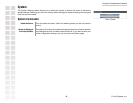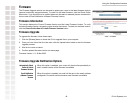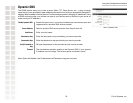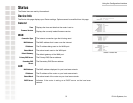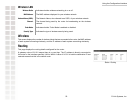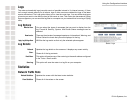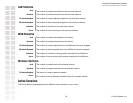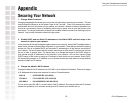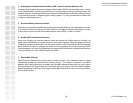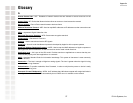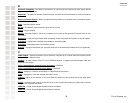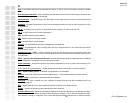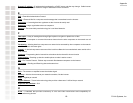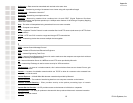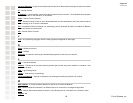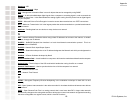
Using the Configuration Interface
56 D-Link Systems, Inc.
4. Changing the Wireless Network Name (SSID - used for wireless devices only)
It is always a good idea to change the wireless network name (SSID) from the default value. Leaving
it in the default state is usually a good indication to intruders that all settings (including security) are
probably defaults. This setting identifies your wireless network. Make sure that the name you choose
is not commonly known or something that is easy to guess. Try using a combination of letters and
numbers to add complexity to it.
5. Set the Visibility Status to Invisible
Wireless routers typically broadcast the wireless network name (SSID) to users attempting to connect
to a wireless network. By setting the Visibility Status to Invisible, all devices attempting to connect
to the router will need to know the wireless network name (SSID) in order to connect.
6. Enable WPA Personal or Enterprise
Along with changing the wireless network name and setting the visibility status to invisible, we
highly recommended that you enable some sort of encryption feature. There are different methods
of securing wireless transmissions, but the most effective is WPA-Personal and WPA-Enterprise.
WPA-Personal is easier to configure but does not offer the extensive level of security that WPA
Enterprise does. If you have the infrastructure to support WPA Enterprise, we recommend that you
use this method. If not, then WPA-Personal will suffice.
7. Set up MAC Filtering
Each networking device (router, access point, wireless card, etc.) on a network contains a unique
hexadecimal number that identifies that specific product. This number is referred to as a MAC
address. MAC filtering allows you to create a list of the MAC address of each device on your network
and only allows these specific devices to associate with your network. With this feature enabled,
devices attempting to connect to your network with a MAC address that is not in the list you created,
will be denied access.



